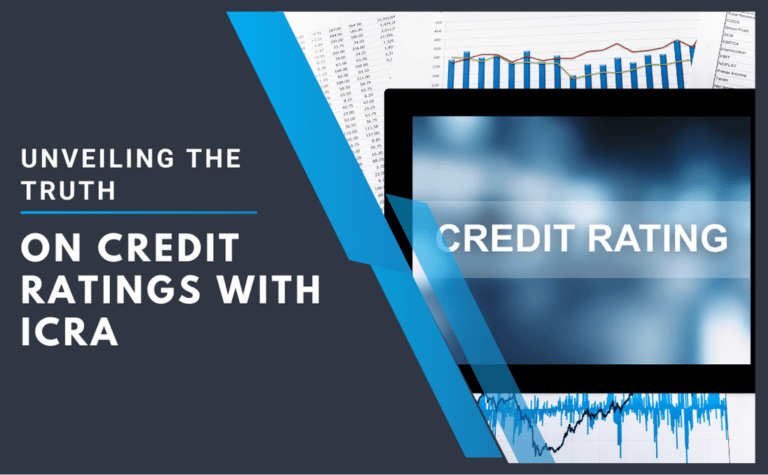
Unveiling the Truth on Credit Ratings with ICRA
A wide range of Ratings is available in the market that is of utmost importance to corporates, issuers, financial institutions, stakeholders, and investors. Ranging from ESG ratings to MFI ratings and beyond, these ratings help provide crucial and comprehensive insights into the financial performance and risk of the entities.
Further fostering decisions regarding allocating capital for investors and receiving favorable borrowing terms for entities, the Credit Rating role is much beyond that. Let us take a closer look into the importance of credit ratings and understand why they matter and their overall impact.
Importance of Credit Ratings
Investment Decisions: With a clear understanding of information regarding an entity it becomes easy for the investors to make well-defined decisions regarding their investments. Since investors rely heavily on it, these credit ratings give an overall picture of an entity’s financial position and its risk profile.
Cost of Borrowing: A high Credit Rating can significantly have a huge impact on the borrowing cost. Entities that are rated higher are less likely to default and thus they have an upper hand on benefiting from lower interest rates while entities with lower ratings might be an indication of the higher risk associated with it and hence they face higher borrowing costs.
Transparency and Accountability: Credit ratings help us gain access to a clear and transparent picture of an entity’s overall performance and operational efficiency. To promote transparency these credit ratings offer a standardized evaluation that is widely accepted.
Debunking Some Myths Related to Credit Ratings
Myth 1 – A higher rating is an indication of guaranteed financial success
A higher credit rating is an indication of strong creditworthiness but it doesn’t necessarily account for financial success since it depends on various factors such as market conditions, market position, management strategy, and much more.
Myth 2 – Credit ratings once issued are static and do not evolve over time
Credit Ratings are based on a lot of factors such as financial performance, market position, market conditions, and other factors. These ratings can change over time as they are regularly viewed and updated and also depend a lot on the changes in an entity’s financial performance.
Myth 3 – Credit ratings are only of use to the investors
The use of credit ratings is of valuable importance not just to investors but also to lenders, corporations, regulators, consumers, government agencies, and financial institutions. With the role credit rating plays in supplier relationships, consumer choices, strategic business planning, lending decisions, and regulator oversight it further fosters the ability to make well-informed decisions and mitigate risks effectively.
Myth 4 – A company’s rating is solely on its financial metrics
Beyond numbers ratings also include non-financial factors and this is done with ESG Ratings provided by ICRA. Companies are viewed as better positioned to advance further and mitigate risks effectively if they excel better in terms of ESG ratings.
Explore the Value of Credit Ratings by ICRA
To navigate the risks that lurk every minute in the financial landscape it is important to leverage the benefits of credit ratings. Transparent insights into creditworthiness and risk profile foster confidence and trust with every investment.
ICRA ensures that these ratings are accurate and reliable and further guide you through any risks and potential opportunities.
For more info Visit here: www.icrallc.com
